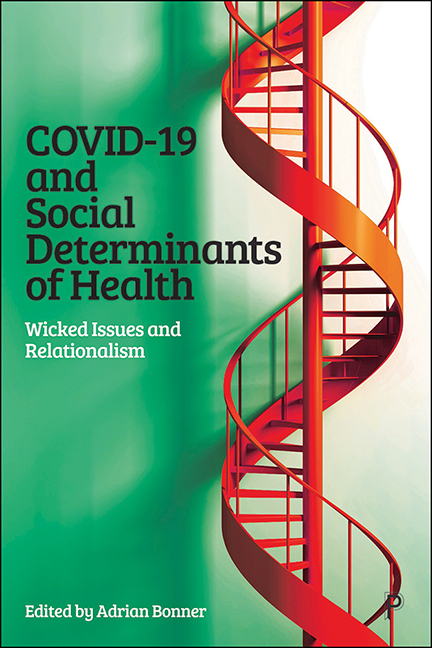Book contents
- Frontmatter
- Miscellaneous Frontmatter
- Contents
- List of figures and tables
- Notes on contributors
- Foreword
- Introduction
- Part I Wicked issues and relationalism
- Part II Regionalism and geopolitical environments
- Part III Public sector, COVID-19 and culture change
- Part IV The third sector
- Part V The case for relationalism
- Part VI Engagement and proposed changes
- Conclusion
- Appendix The Centre for Partnering
- Index
8 - The changing context of public governance and the need for innovation and creating public value
Published online by Cambridge University Press: 18 January 2024
- Frontmatter
- Miscellaneous Frontmatter
- Contents
- List of figures and tables
- Notes on contributors
- Foreword
- Introduction
- Part I Wicked issues and relationalism
- Part II Regionalism and geopolitical environments
- Part III Public sector, COVID-19 and culture change
- Part IV The third sector
- Part V The case for relationalism
- Part VI Engagement and proposed changes
- Conclusion
- Appendix The Centre for Partnering
- Index
Summary
Introduction
In the UK’s HM Treasury Spending Review (November 2020), the Chancellor of the Exchequer confirmed a major reform to value for money assessments of large infrastructure spending which has been biased against Northern cities for too long. HMT Green Book (the rules used to determine value generated by government intervention schemes) and planned investments of £600 billion on transport, energy, schools or hospital investment were widened beyond a narrow definition of benefit compared to cost. Those calculations had inherently favoured the government investing continuously in the South East of England and London. Values of economic return are influenced by existing high property prices in those regions. Additionally, the UK National Infrastructure Commission updated its assessment framework on infrastructure interventions. The novelty lies in the government’s declared commitment to a broader definition of ‘value’, and ‘levelling up’ as a central plank of the UK government’s spending plans for COVID-19 recovery and post-Brexit to address wicked issues and inequalities (HM Treasury, 2020). There is an acknowledgement that measuring the success of multibillion-pound infrastructure projects alone ignores the wider causes of regional imbalances as traditional indicators of gross value added and gross domestic product (GDP) are inadequate (economic activity and productivity – see Figure 8.1 for regional imbalances). Significantly, and probably for the first time, this is an attempt to achieve a balanced portfolio of policy interventions, a broader impact assessment to capture intraregional disparities, within and between clusters of cities, towns and other settlements, for the achievement of wider social outcomes. Not since the creation of the Index of Multiple Deprivation has there been any comprehensive attempt to measure the impact of policies on inequality and deprivation.
New forms of assessment aim to identify and remove constraints to growth, and show how lagging localities can be transformed. Earlier in 2020, the Royal Town Planning Institute had called for a reform of local and strategic planning of utilities and infrastructure to drive economic recovery across London. They advocate place leadership to drive growth, which can only be achieved by engaging a range of civic stakeholders in assessing needs for transforming quality of life and wellbeing.
- Type
- Chapter
- Information
- COVID-19 and Social Determinants of HealthWicked Issues and Relationalism, pp. 155 - 169Publisher: Bristol University PressPrint publication year: 2023

